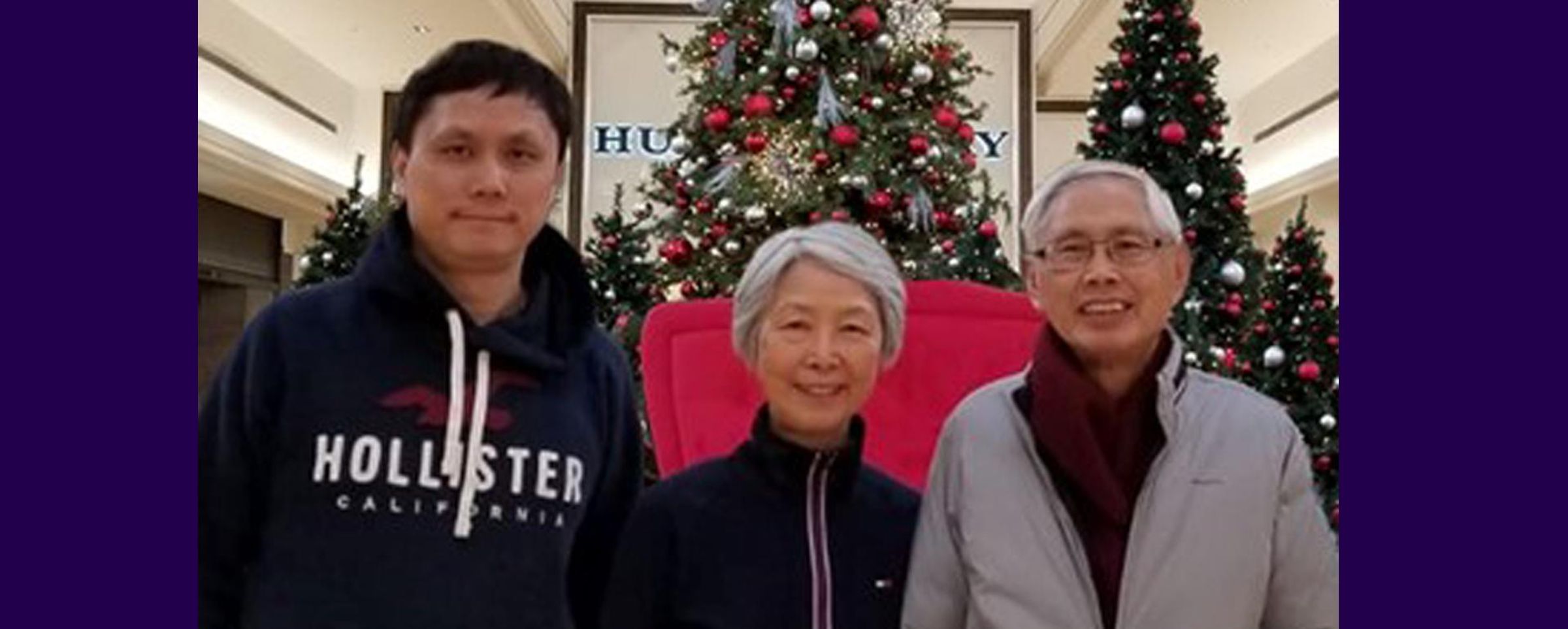Rhythm and Reason: Inspiring the Fight Against Atrial Fibrillation

Wilson Ngai is Head of Medical Foundation, part of Sanofi’s U.S. General Medicines team. He has lived and studied all around the world and holds an MBA from Indiana University, MSc from the University of Toronto and PharmD from the Memorial University of Newfoundland. This September, with Atrial Fibrillation (AFib) Awareness Month underway and top-of-mind, Wilson sat down with us to share how his mother’s journey with AFib drives him to help find solutions for others living with the condition.
You’ve worked and lived all over the world. Can you tell us what excites you about working abroad?
Wilson: I love to learn. Life is a journey which gives us the opportunity to explore and to learn new things. Every time I move to a new place, I learn something new. I’ve learned the beliefs, values, and traditions of different cultures. I get to meet new people and make new friends. Canada, Hong Kong, the U.S. – it’s all part of my journey.
What inspired you to pursue a career in healthcare?
Wilson: I often got sick when I was young. From an early age, I was amazed by the power of medicine and its capacity to help manage what I felt and saw around me. My mother was diagnosed with AFib over 40 years ago. I’ve seen firsthand how the condition impacts her life. I always believed that when equipped with the right medical knowledge, I could help not just my own family, but others as well.
Can you explain what AFib is? How common is it?
Wilson: AFib is a type of irregular heartbeat. It’s estimated to impact as many as 9 million people in the U.S. alone. AFib occurs when irregular or extra electrical signals disrupt the heart’s normal rhythm— this condition can be unpredictable for those living with it. If AFib progresses over time, episodes may occur more frequently or last longer and can lead to devastating events including stroke, heart failure, hospitalizations and death. Nearly one-third of all people with AFib are hospitalized within their first year of diagnosis.
How has your mother’s experience with AFib widened your understanding of what patients go through?
Wilson: AFib is a difficult disease to manage. I’ve seen that up close.
First there is the day-to-day experience. AFib can be scary for patients because they don’t know when their irregular heartbeat might suddenly reappear— if they feel it at all. This causes anxiety that can be constant and overwhelming, leaving people fatigued and sometimes worried to even leave the house or go on trips. Some people may not be able to participate in the activities that they love such as dancing, playing tennis or skiing. These activities can put stress on the heart and might lead to AFib recurrence.
Often, people living with AFib feel as though they aren’t taken seriously by their healthcare team or even their families (since AFib comes and goes), which makes them feel like a burden to those around them.
Additionally, the risks associated with AFib— especially heart failure— increase with age as the disease progresses. It can be challenging to find a healthcare team of different specialists that understand and treat all of these issues collaboratively, including the immediate and the long-term needs, leaving the patient vulnerable. Blood thinners, along with the management of rhythm and rate control, are critical to the holistic care of patients with AFib.
Would you say your mother’s experiences have impacted your work here at Sanofi?
Wilson: Yes, being so close to her AFib journey keeps me focused on the gaps in care that still need to be addressed for people living with AFib. We have a responsibility to act with urgency to understand the difficulties these patients go through and create new solutions to address them.
As we develop and launch patient support programs, build healthcare practitioner training initiatives, or partner with advocacy groups, I try to ask myself: How will this help the patient? Is this what the patients are looking for? How will this help the doctor, nurse, or specialist in treating the patient? Everything we do should begin and end with what the patient needs.

Sanofi Medical Leadership Team Meeting
September is AFib Awareness Month. Are you currently working on any exciting projects for the AFib community?
Wilson: Absolutely! We have a lot going on here at Sanofi.
We continuously evaluate and evolve our programs to ensure we’re providing resources to those who need it most. SmartTraQ is an example of that. Sometimes, new treatment can be overwhelming or confusing. SmartTraQ provides support from knowledgeable nurse managers to help people with AFib better understand their medication and successfully stay on therapy. Additionally, we just launched an innovative AI-based digital coach, Your AFIB Advisor that provides patients and caregivers with an immersive experience to address questions and concerns around AFib treatment.
In research news, the CHANGE AFib trial— a collaboration between the American Heart Association and Duke Clinical Research Institute with support from Sanofi US— recently enrolled its first patient. CHANGE AFib focuses on identifying treatment best practices for newly-diagnosed AFib patients.